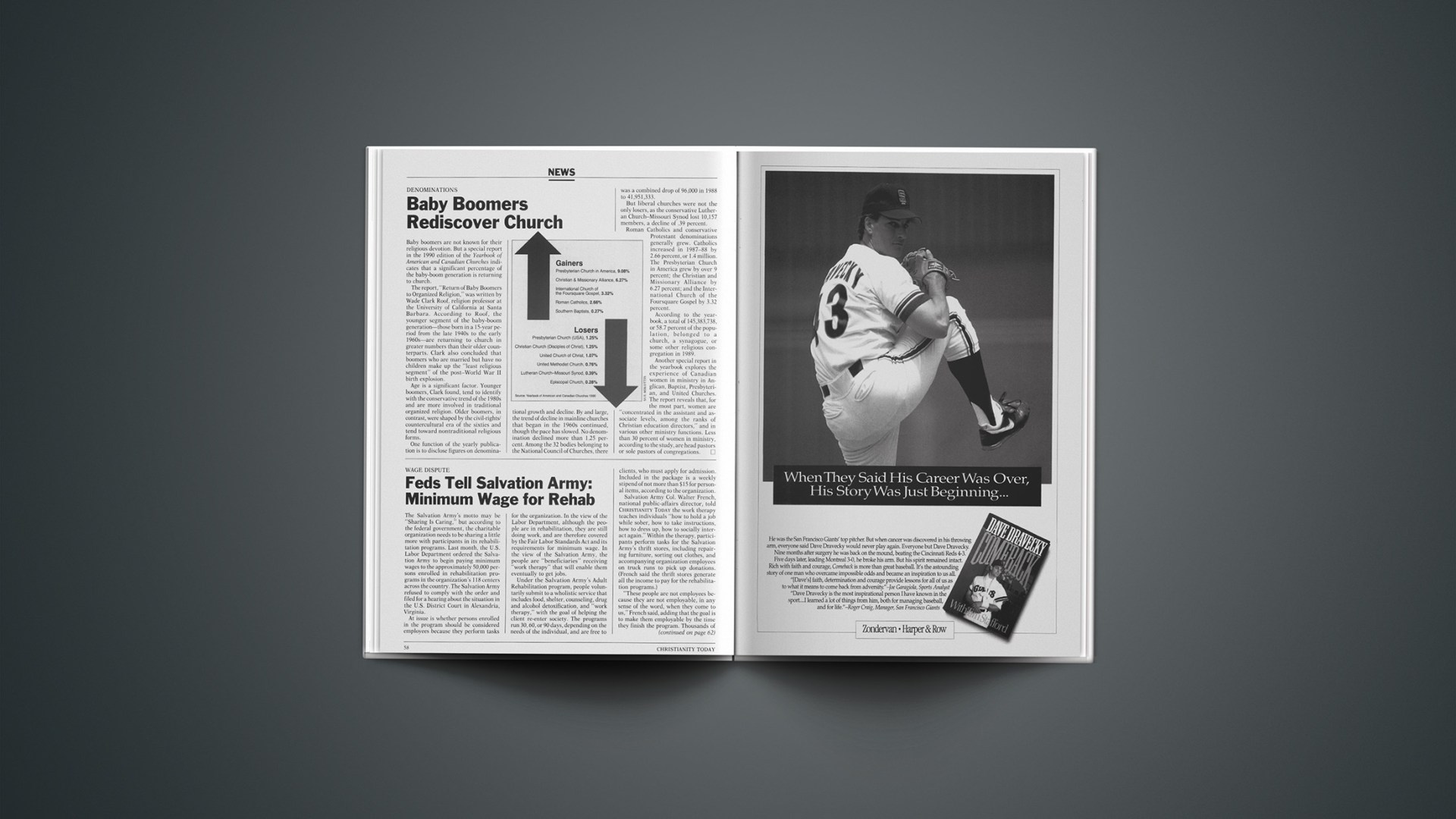The Salvation Army’s motto may be “Sharing Is Caring,” but according to the federal government, the charitable organization needs to be sharing a little more with participants in its rehabilitation programs. Last month, the U.S. Labor Department ordered the Salvation Army to begin paying minimum wages to the approximately 50,000 persons enrolled in rehabilitation programs in the organization’s 118 centers across the country. The Salvation Army refused to comply with the order and filed for a hearing about the situation in the U.S. District Court in Alexandria, Virginia.
At issue is whether persons enrolled in the program should be considered employees because they perform tasks for the organization. In the view of the Labor Department, although the people are in rehabilitation, they are still doing work, and are therefore covered by the Fair Labor Standards Act and its requirements for minimum wage. In the view of the Salvation Army, the people are “beneficiaries” receiving “work therapy” that will enable them eventually to get jobs.
Under the Salvation Army’s Adult Rehabilitation program, people voluntarily submit to a wholistic service that includes food, shelter, counseling, drug and alcohol detoxification, and “work therapy,” with the goal of helping the client re-enter society. The programs run 30, 60, or 90 days, depending on the needs of the individual, and are free to clients, who must apply for admission. Included in the package is a weekly stipend of not more than $15 for personal items, according to the organization.
Salvation Army Col. Walter French, national public-affairs director, told CHRISTIANITY TODAY the work therapy teaches individuals “how to hold a job while sober, how to take instructions, how to dress up, how to socially interact again.” Within the therapy, participants perform tasks for the Salvation Army’s thrift stores, including repairing furniture, sorting out clothes, and accompanying organization employees on truck runs to pick up donations. (French said the thrift stores generate all the income to pay for the rehabilitation programs.)
“These people are not employees because they are not employable, in any sense of the word, when they come to us,” French said, adding that the goal is to make them employable by the time they finish the program. Thousands of people go through the program every year, and some have gone on to assume professional jobs, including university professorships, French said.
If the Labor Department order is allowed to stand, French said, it will mean an immediate end to the rehabilitation program. “If we make them employees, we will have to follow strict lines about dealing with them, including not interfering in their personal lives,” he said. He emphasized that the program is directly aimed at turning personal lives around. Participants are not allowed to make phone calls when they first come in, and must be there 24 hours a day. Counseling and spiritual guidance permeate everything that is done. “They are in a treatment program,” he said.
Labor officials say the matter comes down to fairness and compliance with the law. A Labor Department spokesperson told CT, “There are several other similar organizations like Goodwill and Volunteers of America who are in full compliance with the law.”
Under the provisions of the Fair Labor Standards Act, Goodwill Industries received a special exemption to pay disabled employees in rehabilitation less than the minimum wage. But the Salvation Army said such exemptions would not apply to their organization.
Two weeks after the order was issued, however, Labor Secretary Elizabeth Dole announced she would ask Congress to find an exemption in the act for organizations like the Salvation Army. “Government shouldn’t operate with blinders on,” Dole said. Salvation Army representatives said they believe her action was prompted by the negative publicity about the order, and said the group was willing to negotiate with the government for a compromise.
Meanwhile, government regulations have posed difficulties for another ministry as well. According to the Associated Press, Mother Teresa and her Missionaries of Charity religious order have halted plans to build a homeless shelter in New York City because they do not want to comply with a city order to include an elevator in their facility. The religious order had begun efforts to turn two abandoned buildings in the South Bronx into housing for 64 men, but work stopped when the city ordered an elevator for the disabled. The nuns believed the elevator was an unnecessary $50,000 luxury. In Calcutta, where the order is based, disabled people are carried up and down the stairs. “We said we have different ideas here of personal dignity,” Ann Emerson of the mayor’s office told the AP. “Some people might not want to be carried.”










